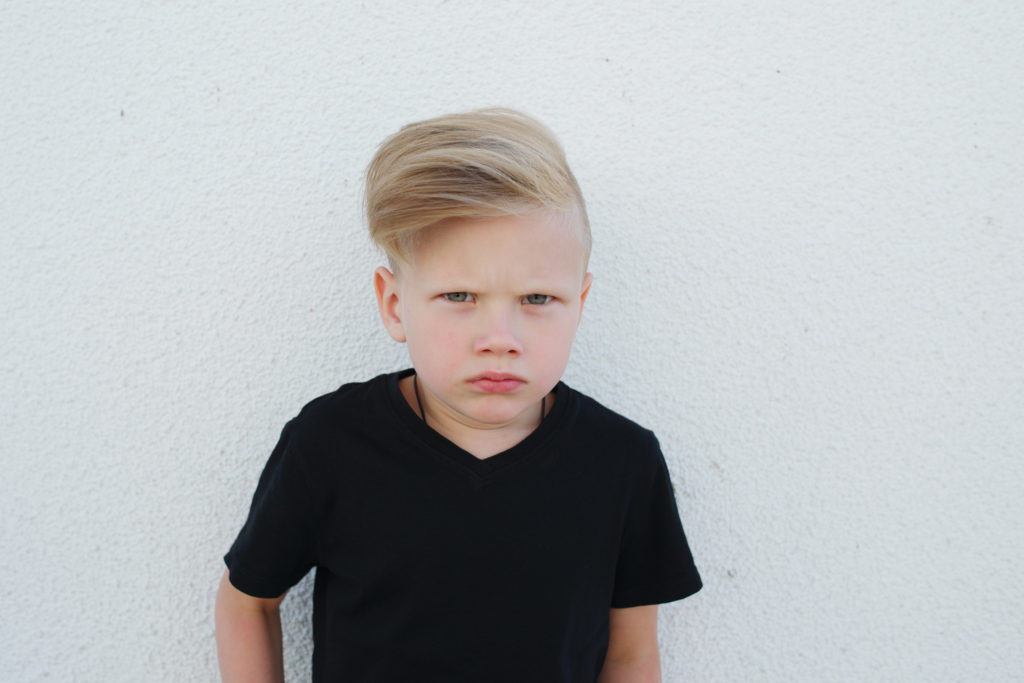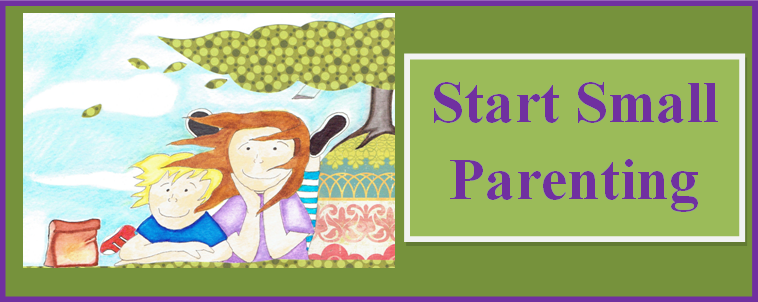 Surly tones, “bad words,” mean comments…these can all feel disrespectful.
Surly tones, “bad words,” mean comments…these can all feel disrespectful.
One of the first questions I ask of parents, “Is there behavior to match the rudeness, or is it confined comments and tone?”
If there is behavior to match, then it’s important to address the behavior. Here, we’ll focus on tone and language.
Stay Calm
If the rudeness remains in the realm of words and tone, the first step is for the parent to practice remaining calm and amiable. That can be easier said than done, especially if the comments feel personally hurtful. So, it definitely takes practice. It can help to have a parenting partner to check in with and have a place to vent your emotional experience.
Anger
Anger or upset emotions is at the root of much disrespect.
Use Mirror Back to let your child know that you can see they are upset. Describe what you see, make a suggestion, acknowledge the feeling, ask a question, or use the Wish Technique.
“You seem angry that it’s too late to go play at Seth’s house.”
“You wish you didn’t have to turn off the television.”
“Are you frustrated with your sister?”
At a Family Meeting, brainstorm ways that family members can healthily express their anger and frustration. List the ideas on a whiteboard (words, drawings, photos…) and then have your child circle his two top favorite choices. Some ideas might include:
- Safe Space with soft items that can be thrown
- 5 Finger breaths
- Jump on the trampoline
- Stomp on the porch
- Scream in the bathroom
- Draw the anger
- Take a bath
- Go for a walk
- Pet the dog
Younger children can practice their top two choices when they are calm to help their muscle memory.
“Bad” Words
Children are great observers. Pretty early on, they become aware that certain words are discouraged or banned from regular conversation. Kids are often very curious about these words. While it can be disconcerting for the parents, their experimentation with these words is developmentally normal.
Every family will have their own level of use and comfort with these kinds of words.
For some families, they have found that designating a space where these words can be used is helpful. Brainstorm with your parenting partner and your family. For some families, that place might be anywhere at home but never out in public. For others, it might mean finding a safe space for disrespectful words – The bathroom? The back yard? The garage?
Problem-Solve
When there is an issue on the table, first find out each person’s 100% need or desire around the issue. Use family brainstorming to problem solve. Develop a plan of action and get agreement from all family members. Revisit the issue at the next family meeting to check-in on how things are going. Here’s an example:
Issue: Rude tone or mean words spoken to other family members.
First round: Clarify the Issue. What specific words and what kind of tone are most disrespectful?
Second round: The Effect on Family Members. Each person says how this is for them to either be a speaker or receiver of disrespect. Perhaps this has become a habit, a way to show anger, hurtful to receive, or some family members may not even be aware it’s an issue.
Third round: Problem Solve. Discuss the family rule or expectation around the behavior.
- If someone is angry, other family members will try to hear them out. “You seem really mad about…”
- A list of ideas: Suggest checking out the brainstormed list of family ideas for what to do when angry instead of to take it out on others.
- When hearing mean or angry words directed at someone, a family member has permission to call it out. “Those words feel mean.” “I don’t want to be around you when you call me names.” “It’s hard to hear what you’re asking for when you yell at me.”
- Practice speaking with respect. If children are young, use puppets/dolls with playtime to role play a scenario, or tell a customized bedtime story where an animal friend works through this same issue. If children are older, use a quiet moment to do a Think-a-Minute around the family value of respectful words.
 As children grow, especially in the teen years, it is developmentally right on track for them to push back against parental control, have big emotions, try to break rules, and use rude or angry tones and comments. As the loving adults who know this, instead of reacting with harsh consequences, anger, or anxiety, we can provide a safe emotional space for them to experiment with this challenging, growing time.
As children grow, especially in the teen years, it is developmentally right on track for them to push back against parental control, have big emotions, try to break rules, and use rude or angry tones and comments. As the loving adults who know this, instead of reacting with harsh consequences, anger, or anxiety, we can provide a safe emotional space for them to experiment with this challenging, growing time.

